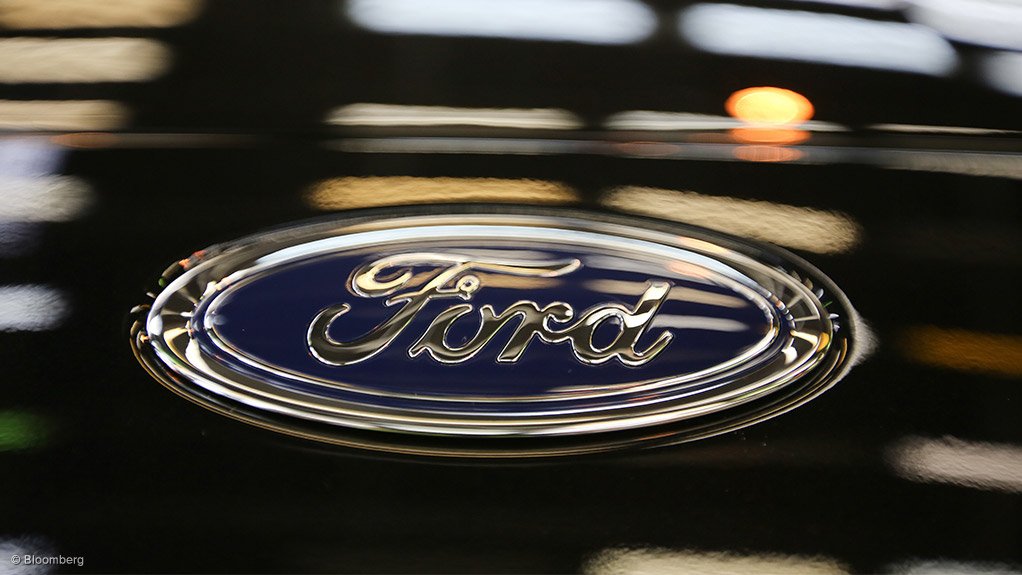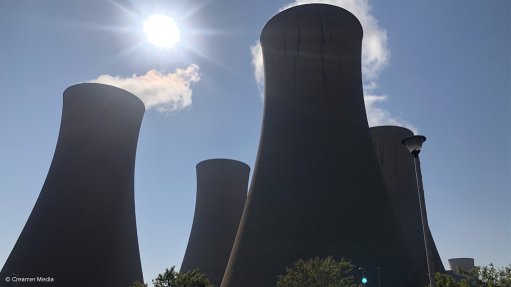Auto manufacturer looking to develop diesel cars to run on converted CO2


PROMISING TECHNOLOGY Ford’s project will test the first-ever cars to run on environment-friendly dimethyl ether and oxymethylene ether
Photo by Bloomberg
Automotive manufacturer Ford Motor Company is spearheading a €3.5-million research project to investigate the use of alternative fuels that could offer customers the power and performance of modern internal combustion engines, with enhanced fuel efficiency and environmental benefits comparable to an electric vehicle.
The Ford European Research and Innovation Centre is leading the project consortium, with the German government cofunding the three-year project.
The project will test the first-ever cars to run on environment-friendly dimethyl ether (DME), which is commonly used as a nontoxic propellant in aerosol spray gas, and oxymethylene ether (OME1), a liquid usually used as a solvent in the chemicals industry.
Ford notes that the ethers, which will power cars based on the Ford Mondeo model, offer the potential for extremely low particulate emissions and enhanced fuel efficiency.
These ethers can be generated from (fossil) natural gas, biogas or through a power-to-liquids process, which uses renewable-energy sources, such as solar energy, wind power, or waste products, combined with carbon dioxide (CO2) captured from the air.
This promising technology is being investigated in a parallel project together with RWTH Aachen University, in Germany, which explores the viability of different DME-generation methods, conversion efficiency, estimated fuel prices, and infrastructure aspects.
Other project partners include the Technical University of Munich, the Research Association for Combustion Engines, called FVV, international certification organisation TUEV, automotive manufacturer Denso, engineering company IAV Automotive Engineering, and fuel manufacturer Oberon Fuels.
DME produced by Oberon has received approval from the US Environmental Protection Agency as a biogas-based fuel under the Renewable Fuel Standard, which means that it could be used as a fuel in the US.
Meanwhile, through the FVV – the leading forum for joint research projects on engine technology in Germany – the project findings will be shared with key players within the automotive industry.
“The CO2 produced by a car powered by DME from renewable sources could be comparable to the amount generated by a marathon runner covering the same distance – but with performance similar to a diesel-powered vehicle,” says Ford Europe technical specialist for powertrain combustion systems Werner Willems.
“This is a project that could help place vehicles with significantly reduced CO2 and particulate emissions on the market at affordable costs,” he avers.
The DME and OME1 products produce almost no particulates and they share characteristics with diesel fuel that are expected to make conversion of diesel engines possible with comparable performance.
It is also estimated that DME from renewable-energy sources could offer well-to-wheel emissions of about 3 g/km of CO2.
Like liquefied petroleum gas, DME must be stored in a slightly pressurised tank, while OME1 can be stored in a conventional tank system. The DME-powered engines are expected to benefit from almost soot-free combustion, higher thermal efficiency and excellent cold-start properties.
Ford global powertrain research and advanced engineering director Andreas Schamel further notes that the growth of the world’s population is putting ever-increasing demands on energy, especially fossil fuels.
“[Consequently], alternative renewable fuels like methyl ethers will play a pivotal role in the future,” he says, emphasising that DME is safe, burns cleaner than conventional diesel, and, most importantly, is versatile.
The energy generated from solar, wind and other renewables can be stored within the fuel itself, which enables DME and OME1 to be used across a range of applications, Schamel concludes.
Article Enquiry
Email Article
Save Article
Feedback
To advertise email advertising@creamermedia.co.za or click here
Press Office
Announcements
What's On
Subscribe to improve your user experience...
Option 1 (equivalent of R125 a month):
Receive a weekly copy of Creamer Media's Engineering News & Mining Weekly magazine
(print copy for those in South Africa and e-magazine for those outside of South Africa)
Receive daily email newsletters
Access to full search results
Access archive of magazine back copies
Access to Projects in Progress
Access to ONE Research Report of your choice in PDF format
Option 2 (equivalent of R375 a month):
All benefits from Option 1
PLUS
Access to Creamer Media's Research Channel Africa for ALL Research Reports, in PDF format, on various industrial and mining sectors
including Electricity; Water; Energy Transition; Hydrogen; Roads, Rail and Ports; Coal; Gold; Platinum; Battery Metals; etc.
Already a subscriber?
Forgotten your password?
Receive weekly copy of Creamer Media's Engineering News & Mining Weekly magazine (print copy for those in South Africa and e-magazine for those outside of South Africa)
➕
Recieve daily email newsletters
➕
Access to full search results
➕
Access archive of magazine back copies
➕
Access to Projects in Progress
➕
Access to ONE Research Report of your choice in PDF format
RESEARCH CHANNEL AFRICA
R4500 (equivalent of R375 a month)
SUBSCRIBEAll benefits from Option 1
➕
Access to Creamer Media's Research Channel Africa for ALL Research Reports on various industrial and mining sectors, in PDF format, including on:
Electricity
➕
Water
➕
Energy Transition
➕
Hydrogen
➕
Roads, Rail and Ports
➕
Coal
➕
Gold
➕
Platinum
➕
Battery Metals
➕
etc.
Receive all benefits from Option 1 or Option 2 delivered to numerous people at your company
➕
Multiple User names and Passwords for simultaneous log-ins
➕
Intranet integration access to all in your organisation



















